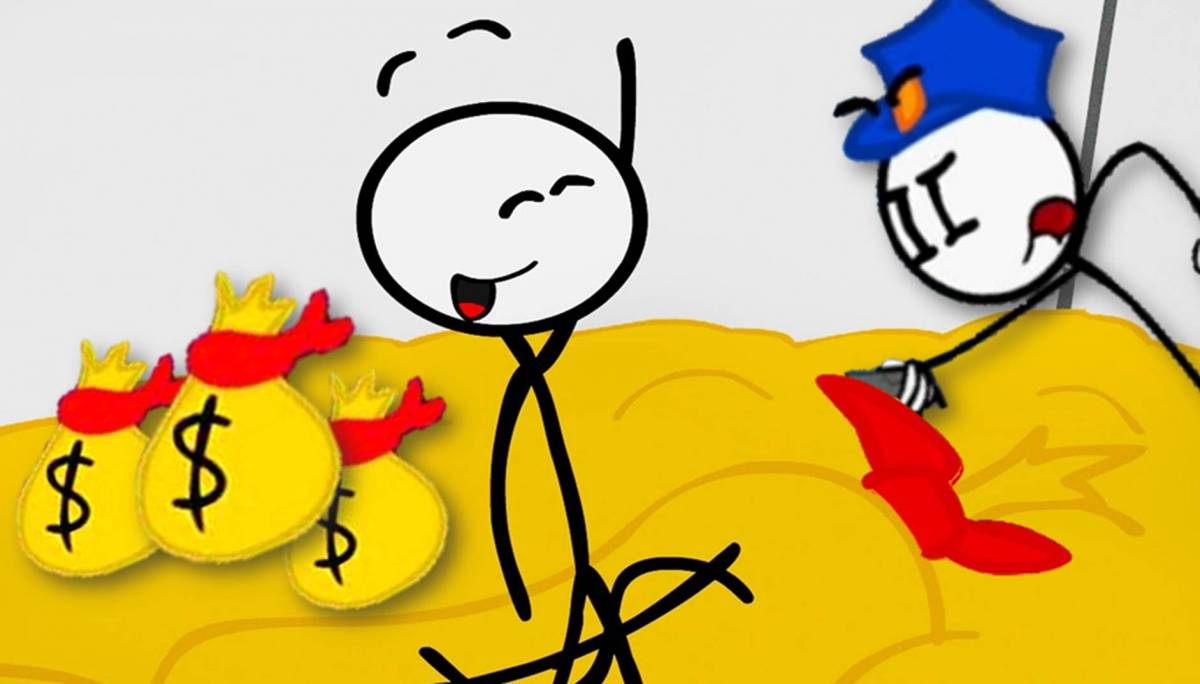Over ninety billion USD: the suspected worth of the video game industry. Actually no, scratch that; that was the approximation made at the end of 2015, and with 2016 being a host to Battlefield 1 and Uncharted 4 amongst others, that number is bound to have rocketed. And yet, although gaming is now embedded in the mainstream, there are vicious divisions between the peasants of consoles and pompous losers of desktops, united only by the condescending attitude towards casual gamers.
But there exists a fourth branch of gamers, one that few people mention, and one that nobody has any beef against. Amongst the vast reaches of the Internet there thrives a sprawling metropolis of entirely free games. Not nearly the size of modern indie games such as Minecraft or Rimworld, and yet every little bit just as enjoyable. These ‘Flash games’ have been the saving grace of every computer-filled classroom of the days of old, granting near-instantaneous fun for the low, low price of zero. Offering almost unparalleled range in choice, from point-and-click adventures to old Final-Fantasy-esque RPGs, excitement-inducing shooters to relaxing tycoon management sims, these small snacks could sate an appetite for minutes and hours alike.
To those who dabbled with flash games, certain icons and characters might evoke nostalgia: The ginger-haired Pico, the intelligent zombie Sonny. The vicious balloons of Bloons Tower Defense, the orange pantaloons of the Fancy Pants adventure. The pleasant animations of GROW games, and the helpless torture pal of Interactive Buddy. Regardless of your favourite genre, there is bound to be a definitive figurehead of a game.
Paragraphs upon paragraphs of praise could be written about the joys of each individual games. ‘Breaking the Bank’ and its spin-offs follow Henry Stickmin, a criminal extraordinaire, seeking to pull-off increasingly elaborate heists, making sure to tick-off every Internet-and-pop-culture reference permissible. ‘Desktop Tower Defence’ has you create mazes of turrets on a rather mundane desk, likely resembling that of any white-collar office worker. My personal favourite is called ‘:the game:’ and it features hilariously composed political statements and allusions to the Internet culture of 2005-2009 period, which appear in powerpoint fashion as you literally jump off of a cliff. Go play it. Please.
But these video games could not exist without the tireless support of the websites which maintain their presence. Whether borderline barebones or impressively intricate, such sites ensure that small-time developers can present their work. The two most critical domains to which the growth and exposure of free online games can be attributed are Newgrounds and Kongregate.
Newgrounds has had considerably little presence as of lately, but it has been imperative in the past. It presented the opportunity for anyone, a person or a team, to upload various multimedia including music, animations and games. It had a robust, active community and has been vital to some developers; more on that later.
Kongregate boasts tens of thousands of players, and is consistently modernised leading to it being one of the biggest gaming domains on the Internet. An ever-present community, chatrooms, achievements and plenty of other features led it to become – a term which I instantly trademark – the Steam of Free(TM). At the moment it’s plagued by an invasion of ‘idle’ games – click a few times to earn currency, spend currency on upgrades, and rejoice as overnight you still ‘progress’ – yet that does not stop it from offering amazing games, new and old, such as Epic Battle Fantasy or Last Stand.
Considering that Kongregate routinely scores thousands of users online (across all of its games; a vast majority is probably inactive, with the community centred on new releases, multiplayer games and old hits) it might be surprising that these games tend to stay under the radar of the media. However, the estimates of the net worth of flash game industry are shaky in the least, which does not help in attracting publishers. Kongregate offers ‘premium’ accounts and ‘Kredits’ that a user can send directly to a developer, but across most sites the main source of revenue is advertising, the worth of which could be hard to estimate.
Still, one could argue that this fringe minority of gamers is starting to insert itself into the wider, mainstream community. That is the topic for the second half of ‘Flash Games’ titled “Into the Big Leagues”. We will take a look at the entry of flash game developers into both the casual game market and the heavyweight arena.
Some of the coverage you find on Cultured Vultures contains affiliate links, which provide us with small commissions based on purchases made from visiting our site. We cover gaming news, movie reviews, wrestling and much more.



